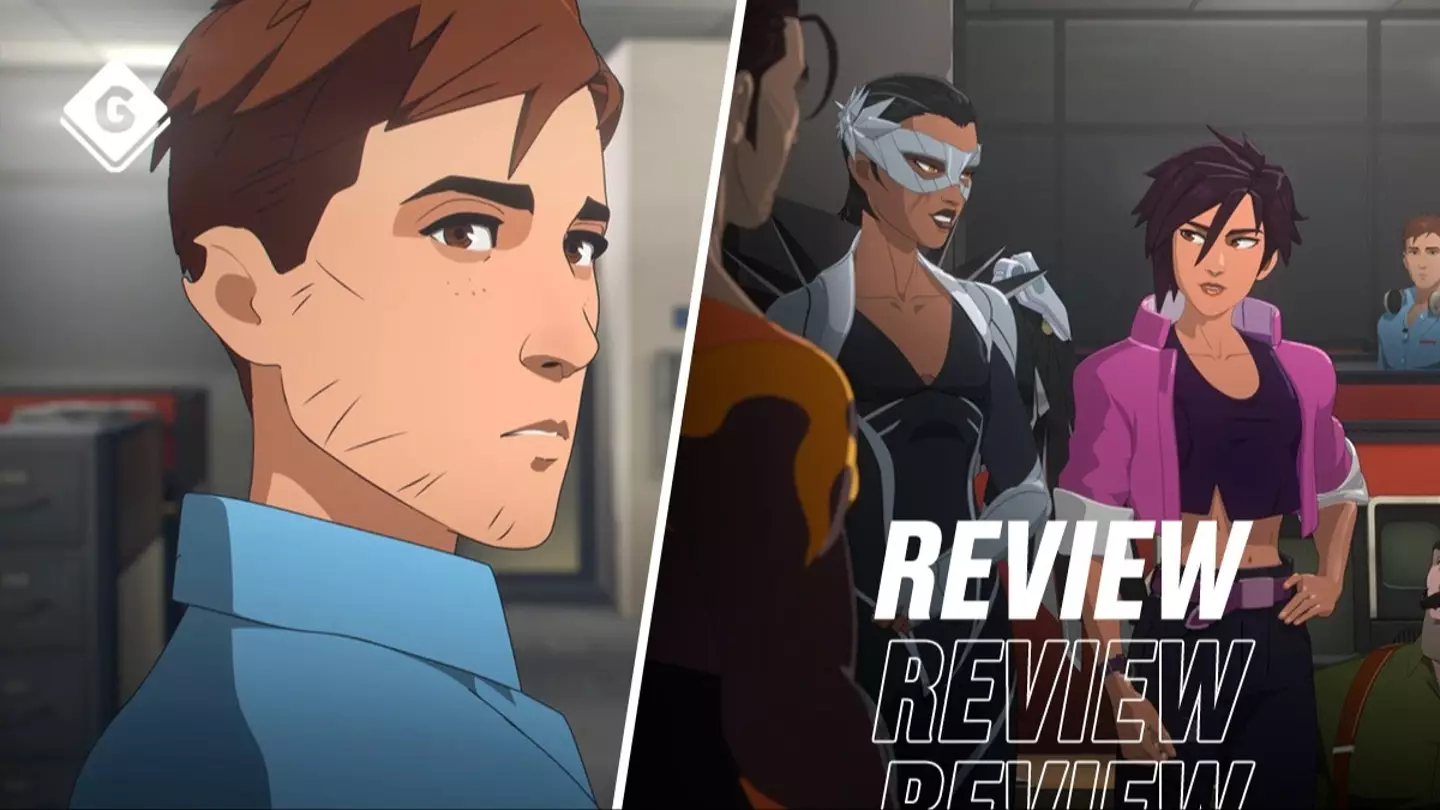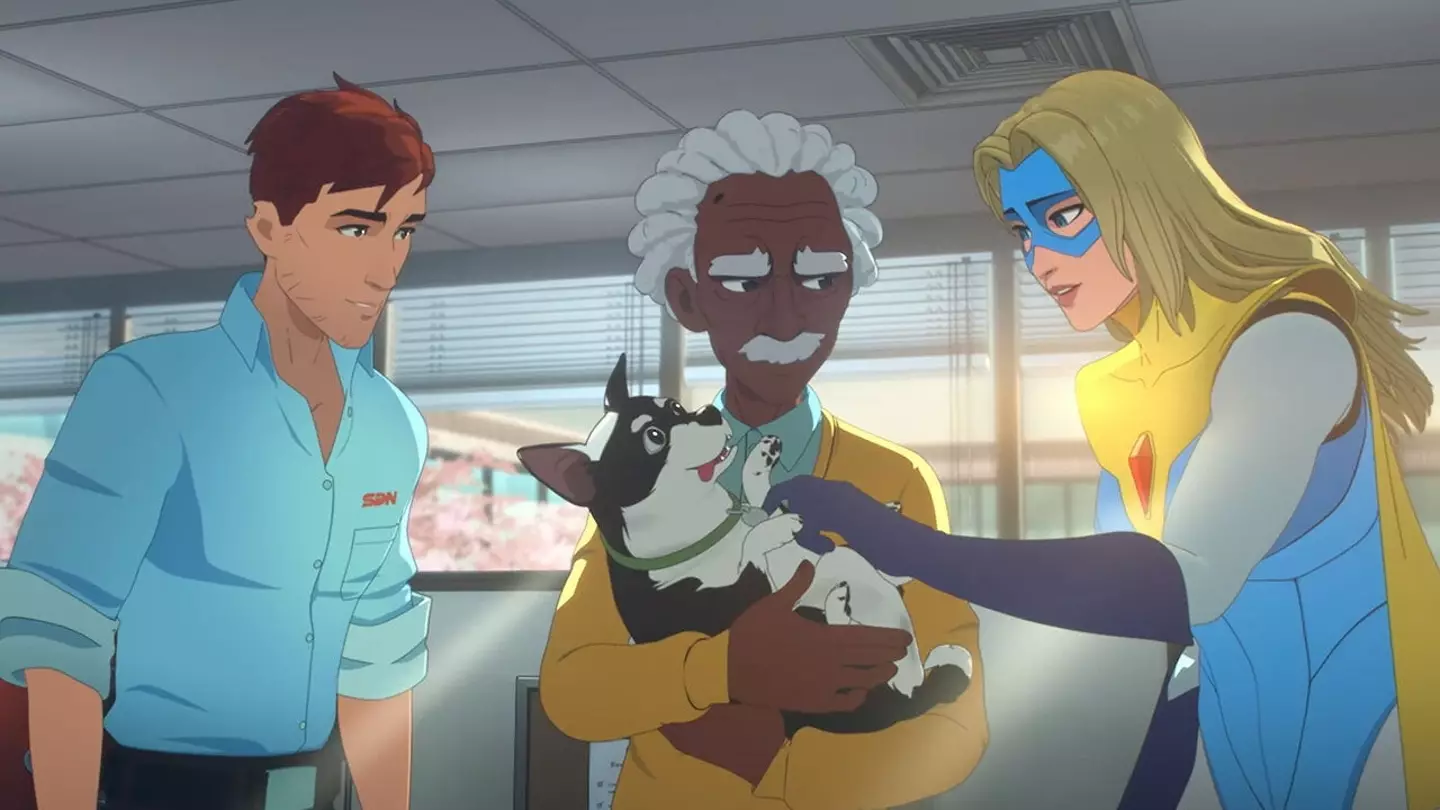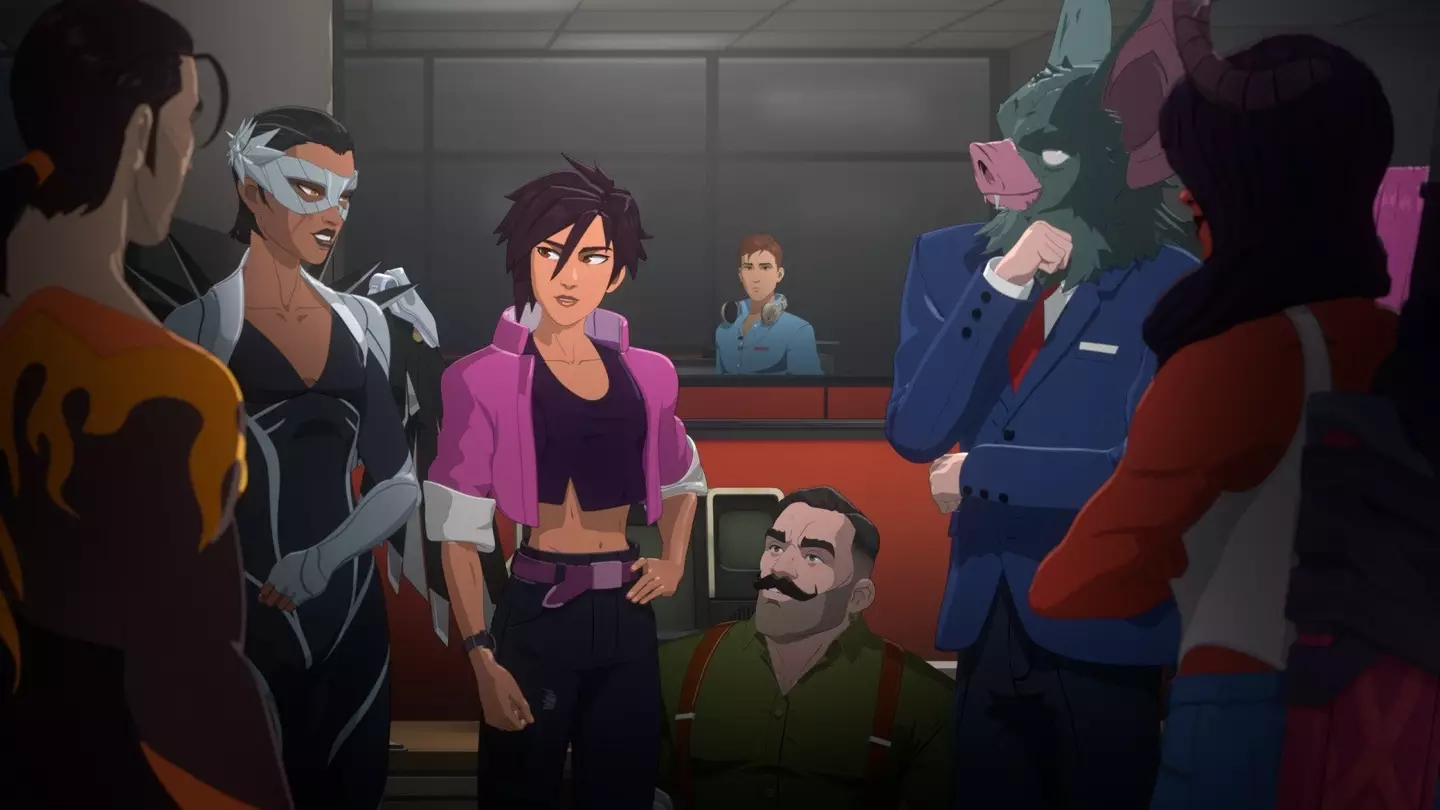
It’s difficult to continue to heap praise upon something I’ve already outlined as perfection, but that is the task that lies before me. I came away from Dispatch’s opening two episodes feeling wholeheartedly impressed, but even perhaps that is underselling it. It quickly became apparent to me that Dispatch was shaping up to be not just one of my favourite releases of the year, but one of my favourite releases of all time. Having now played episodes three and four, I’m only more certain of that fact.
AdHoc Studio’s Dispatch continues to go from strength to strength, with the episodic releases now really beginning to hit their stride. Players will find themselves making majorly nail-biting choices and grappling with intensified dispatching demands as the ante is upped in just about every area. To recap, Dispatch is a “superhero workplace comedy” from AdHoc Studio, a team consisting of former Telltale Games developers. It intersperses its choice-based narrative with puzzle-solving and management-inspired gameplay. Players take on the role of Robert Robertson, also known as Mecha Man, who finds himself working as a dispatcher at SDN, the Superhero Dispatch Network, after his suit is destroyed. There, he’s put in charge of the Z-Team composed of former villains.
I won’t recount all that I’ve already said. If you want to know why Dispatch's cast, story, and gameplay all shine, I heartily suggest that you read my review of the game’s opening two episodes. Here, I’d like to highlight how exactly the already brilliant formula is being built upon to add a sense of development, urgency, and perhaps even mastery.
By this stage, Dispatch is aware that you’ve got to grips with its dispatching segments, with developers now choosing to raise the stakes. As I made clear in my previous review, I rapidly fell in love with the formula AdHoc has created here, so I was delighted to find that it really began to push me in the challenge department in these latest two episodes. It felt as if the calls would flood in much quicker and that’s going to force a change in approach.
Advert

If you’ve played the opening episodes, you’ll know that sending two heroes on a mission will almost guarantee your success. As Dispatch progresses, that’s far less viable. With more calls coming in, you can’t exactly afford to waste two people on one crime, but that also means you’re far more likely to mess up, potentially injuring your heroes. It’s all so thrilling as it never really allows you to settle. The pace is relentless and there’s a real need to strategise as you level up your heroes and attempt to make the right decisions.
What I will say is that you will unlock a couple of small aids this time around. It’s during these two episodes that I gained access to two helpful items with a one-time use per dispatching session. One, for example, allowed me to heal an injured hero, so it’s not as if the stabilisers are completely removed. Even still, you’ll likely find your success rate will dip, but I’d argue that’s part of the fun. I did feel that in episodes three and four I began to gain a better grasp on mastering my heroes’ abilities. Teaming up certain heroes can result in one-off stat boosts or perks. Partnering Malevola with an injured hero will heal them, for example. Those sorts of perks naturally unfolded in the first two episodes, but I do feel Dispatch is built so that you gain a better mastery of them yourself as the episodes progress.
The hacking aspect of Dispatch’s gameplay also raises the stakes in episodes three and four. When you begin hacking in those opening episodes, it’s pretty much a walk in the park. Here? Not so much. Anti-hacking measures will chase you down with intent, putting you under intense time constraints. In one instance, the anti-hacking measure was locked within a certain part of the network that I knew I’d have to get past. It then became a question of working out which paths to open so that I could secure safe passage forward before I got caught. I failed multiple such hacking attempts but again, I’d argue that only fits with the high pressure intensity of the job Dispatch is recreating.

In my review of the opening two episodes, I praised the fact that Dispatch’s narrative choices carry real weight. I despise when games of this genre present you with choices that somehow determine events eight-hours off and even then, you’re not exactly sure how. Dispatch is very clear in presenting the various paths to you, even if you don’t know exactly how things will play out. That continues to be the case in episodes three and four where players will easily make some of their most difficult choices yet. It’s a tricky aspect of the game to discuss because I do want this to remain a spoiler-free review. I’ll simply leave it at the fact that episodes three and four will see both Robert’s team and personal life undergo some major developments and changes, and I already know I’m itching to replay Dispatch to follow the alternate version of events.
I’ve already called Dispatch a GOTY contender and it’s a statement I continue to stand by. The animation remains impeccable, as do the cast performances with Aaron Paul (Robert Robertson), Laura Bailey (Invisigal), and Erin Yvette (Blonde Blazer) making for enamouring leads. In its third and fourth episodes, Dispatch respects that it is a journey that players want, upping the ante in terms of both the story and gameplay, making for a ride that is even more thrilling and engaging. Bring on the next batch.
Pros: Storytelling and performances remain strong, engaging story choices, gameplay challenge steps up
Cons: Nothing
For fans of: Life is Strange, The Walking Dead, The Wolf Among Us, The Boys
10/10: Perfect
Dispatch’s first four episodes are now available, with episodes five and six landing on 5 November, and episodes seven and eight on 12 November on PC (version tested) and PlayStation 5. A review code was provided by the publisher. Read a guide to our review scores here.
Topics: PC, Steam, PlayStation, PlayStation 5, Indie Games, Reviews